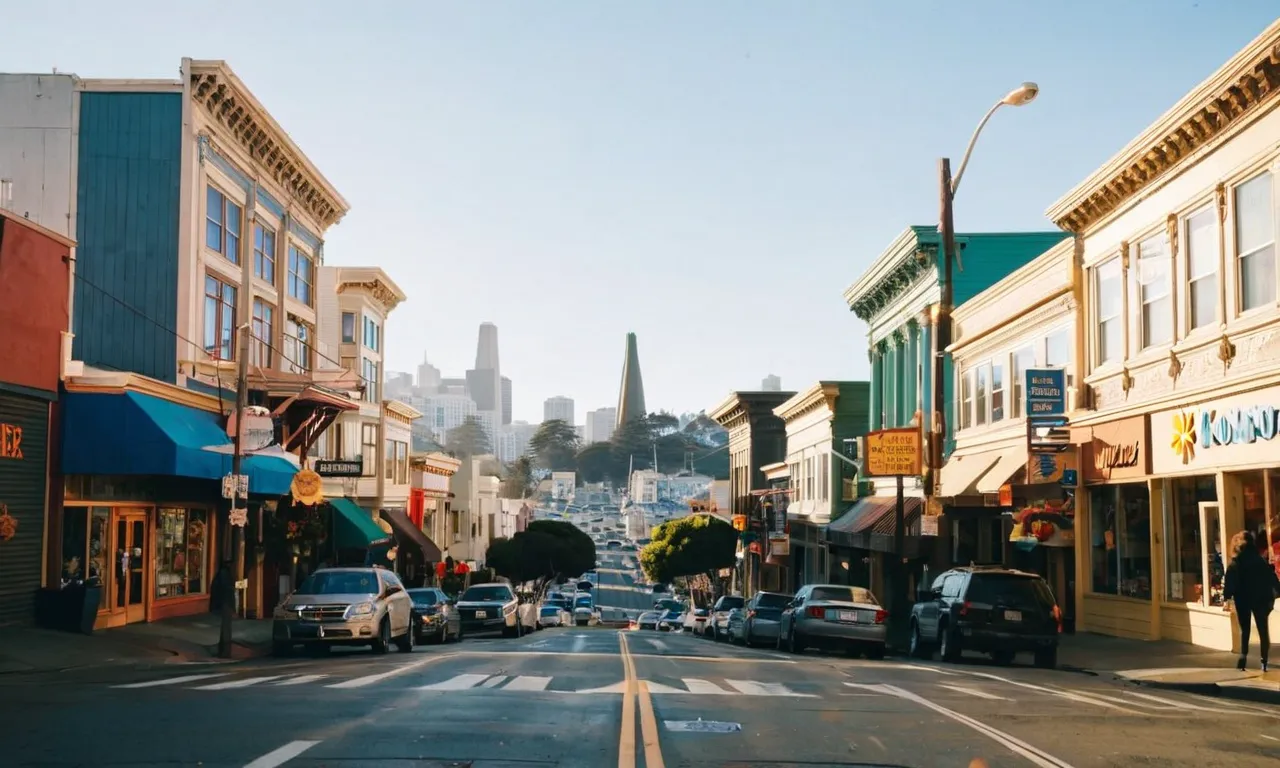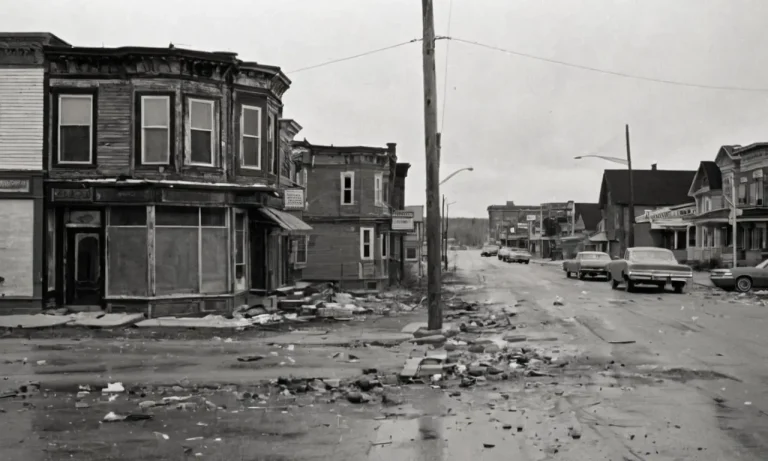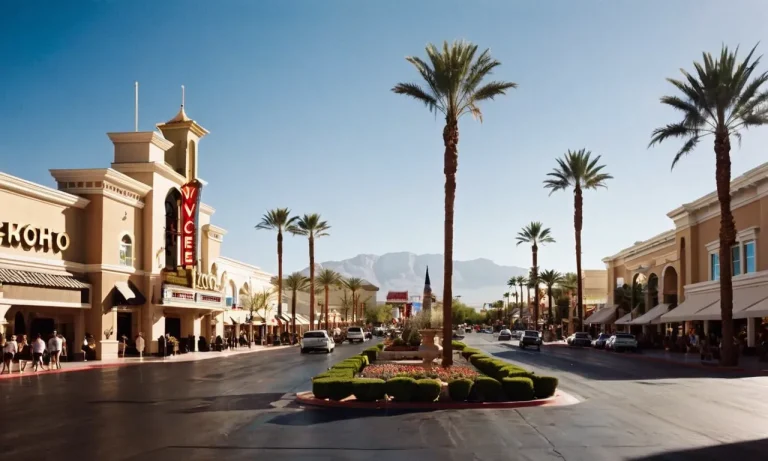Why Is There No Walmart In San Francisco?
San Francisco is one of the few major cities in the United States without a Walmart store. If you’ve ever wondered why Walmart, the world’s largest company by revenue, doesn’t have a presence in the tech hub of SF, you’re not alone.
If you’re short on time, here’s a quick answer: Walmart has tried and failed multiple times to open stores in San Francisco due to strong community opposition and restrictive zoning laws.
In this comprehensive article, we’ll explore the full reasons why Walmart has struggled to gain a foothold in San Francisco over the past two decades. We’ll cover the attempts by Walmart to open stores, the strong community backlash, the political landscape, zoning challenges, and what the future may hold.
Attempts by Walmart to Open SF Stores
Proposed Store in the Tenderloin District (2004)
One of Walmart’s earliest attempts to open a store in San Francisco was in the Tenderloin District back in 2004. The company had proposed to open a store in this neighborhood, which is known for its diverse community and vibrant culture.
However, this proposal faced strong opposition from local residents, community organizations, and labor unions. They raised concerns about the negative impact the store might have on small businesses in the area, potential job losses, and the company’s labor practices.
Plans for Supercenter in the Bayview Neighborhood (2010)
In 2010, Walmart made another attempt to enter the San Francisco market by planning to open a Supercenter in the Bayview neighborhood. The company believed that this location would provide affordable groceries and goods to an underserved community.
However, similar to the previous proposal, this plan faced significant opposition. Critics argued that Walmart’s entry into the market would lead to the closure of local businesses, job losses, and decrease in wages for workers.
Interest in Mid-Market Area Location (2013)
In 2013, Walmart expressed interest in opening a store in the Mid-Market area of San Francisco, which was undergoing revitalization efforts at the time. The company saw an opportunity to contribute to the economic development of the neighborhood and provide employment opportunities.
However, once again, there was strong resistance from community activists, labor unions, and local politicians. They argued that Walmart’s business practices were not aligned with the values and goals of the community.
Despite Walmart’s repeated attempts, the company has not been able to open a store in San Francisco. The city’s unique demographics, strong community activism, and concerns about the impact on local businesses and workers have played a significant role in preventing Walmart from establishing a presence in the city.
Community Opposition to Walmart
One of the main reasons why there is no Walmart in San Francisco is the strong community opposition. The city’s residents have voiced their concerns about various aspects of Walmart’s business practices and its potential impact on the local economy.
These concerns have played a significant role in preventing the retail giant from establishing a presence in the city.
Concerns About Low Wages and Benefits
One of the major points of contention is the issue of low wages and benefits offered by Walmart. Critics argue that the company’s labor practices are exploitative and that its employees are often paid significantly less than other retail workers in the area.
This has led to concerns about the potential impact on workers’ livelihoods and the overall economic well-being of the community.
Fears of Impact on Local Retailers
Another concern raised by the community is the potential negative impact on local retailers. Many fear that Walmart’s entry into the San Francisco market would result in the closure of small, independent businesses.
They worry that the retail giant’s competitive pricing and extensive product selection would make it difficult for local retailers to compete, leading to job losses and a decline in the diversity of the city’s retail landscape.
Anti-Walmart Sentiment in Progressive SF Politics
San Francisco is known for its progressive politics, and this sentiment extends to opposition against big-box retailers like Walmart. Many local politicians and community activists have taken a strong stance against Walmart’s business practices and its perceived negative impact on communities.
This has further fueled the community’s opposition and made it challenging for Walmart to gain a foothold in the city.
San Francisco’s Zoning Challenges
San Francisco, known for its vibrant culture and unique neighborhoods, has long been a city that prides itself on preserving its local character. However, this commitment to preserving the city’s charm has also created zoning challenges that have prevented Walmart, the world’s largest retailer, from establishing a presence within the city.
Formula Retail Ban in Neighborhood Districts
One of the main reasons why there is no Walmart in San Francisco is due to the city’s formula retail ban in neighborhood districts. This ban restricts the proliferation of chain stores and aims to protect small, locally-owned businesses.
The ban defines formula retail as businesses with 11 or more locations worldwide that have standardized features, such as logos, uniforms, and policies. Walmart, being a global retail giant, falls under this category and is thus prohibited from opening stores in these designated areas.
This ban has been implemented to maintain the unique character of each neighborhood, preserving the local businesses that contribute to the city’s diverse and vibrant economy. While some argue that Walmart’s entry into the market would provide more employment opportunities and lower prices for consumers, others believe that it could negatively impact the small businesses that are integral to the fabric of San Francisco’s neighborhoods.
Restrictions on Large Retail Establishments
In addition to the formula retail ban, San Francisco also has restrictions on large retail establishments. The city’s Planning Code requires large retailers, defined as those with over 50,000 square feet of floor area, to undergo a conditional use authorization process.
This process involves a public hearing where the impacts of the proposed store on the community are evaluated.
The purpose of these restrictions is to ensure that the introduction of large retail establishments aligns with the city’s goals of maintaining diverse and thriving neighborhoods. The process allows for community input and consideration of factors such as traffic congestion, parking availability, and the potential displacement of local businesses.
Hurdles with Environmental Reviews
Another challenge that Walmart has faced in its attempts to establish a presence in San Francisco is the city’s stringent environmental review process. San Francisco has a reputation for being environmentally conscious and prioritizing sustainability.
As a result, any large-scale development, including retail establishments, must undergo a thorough environmental impact review.
This review evaluates the potential impacts on air quality, noise levels, traffic patterns, and other environmental factors. Walmart has faced criticism in the past for its environmental practices, which has made it difficult for the company to navigate the review process and gain approval for new stores in San Francisco.
Political Landscape
One of the main reasons why there is no Walmart in San Francisco is due to the complex political landscape of the city. San Francisco has a long history of progressive politics and a strong emphasis on workers’ rights, which has created barriers for large retail chains like Walmart to enter the market.
Powerful Retail Workers Union Opposition
The powerful opposition from the retail workers union is one of the key factors preventing Walmart from setting up shop in San Francisco. The union, known as the United Food and Commercial Workers (UFCW), has been vocal about its concerns regarding Walmart’s labor practices and low wages.
They have actively lobbied against the company’s expansion into the city, making it difficult for Walmart to gain a foothold in the local market.
Stance of Current and Past Mayors
The stance of both current and past mayors of San Francisco has also played a role in keeping Walmart out of the city. They have been supportive of the workers’ rights movement and have expressed concerns about the impact Walmart’s entry could have on local businesses and the community.
Their opposition has made it challenging for the retail giant to navigate the political landscape and gain approval for store openings.
Views from Board of Supervisors
The Board of Supervisors, the legislative body of San Francisco, has also been instrumental in preventing the arrival of Walmart. Many board members have expressed their support for local businesses and have taken a critical stance against big-box retailers like Walmart.
They have implemented zoning restrictions and passed legislation that makes it difficult for large retailers to establish a presence in the city.
What Does the Future Hold?
The future of San Francisco’s retail landscape remains uncertain, but there are several factors that may influence whether or not a Walmart will ever open in the city.
Changing Consumer Preferences
One of the key factors shaping the future of retail is the changing preferences of consumers. In recent years, there has been a shift towards supporting local businesses and shopping at smaller, independent stores.
San Francisco is known for its vibrant local economy, with residents often choosing to support local merchants over large corporate chains.
Additionally, consumers are increasingly concerned about the social and environmental impact of their purchases. Walmart has faced criticism in the past for its labor practices and impact on local communities.
As consumers become more conscious of these issues, it may become increasingly difficult for large retailers like Walmart to gain a foothold in cities like San Francisco.
City Regulations and Zoning Laws
Another factor that may impact the future of retail in San Francisco is the city’s stringent regulations and zoning laws. San Francisco has long been known for its strict zoning regulations, which can make it difficult for large retailers to find suitable locations for their stores.
Additionally, the city has implemented a number of policies aimed at preserving the character and uniqueness of its neighborhoods, which may make it less likely for a Walmart to be approved for development.
Competition from Existing Retailers
San Francisco already has a thriving retail scene, with a wide variety of options available to consumers. From boutique stores to specialty shops, the city offers a diverse range of shopping experiences.
This strong competition from existing retailers may make it challenging for a new player like Walmart to establish a presence in the city.
Furthermore, San Francisco is home to several major grocery store chains, such as Whole Foods and Trader Joe’s, which have successfully captured a significant portion of the market. These established retailers have built loyal customer bases and have a deep understanding of the unique needs and preferences of San Francisco residents.
Conclusion
In summary, Walmart has faced consistent barriers in their attempts to open stores in San Francisco due to restrictive policies, powerful community opposition, and unfavorable political landscapes.
While Walmart has immense clout as the world’s top retailer, they have been unable to overcome the unique challenges posed by San Francisco politics and culture. The future remains uncertain if Walmart will ever manage to plant its flag in the city by the bay, but they have so far remained shut out for over 20 years.








